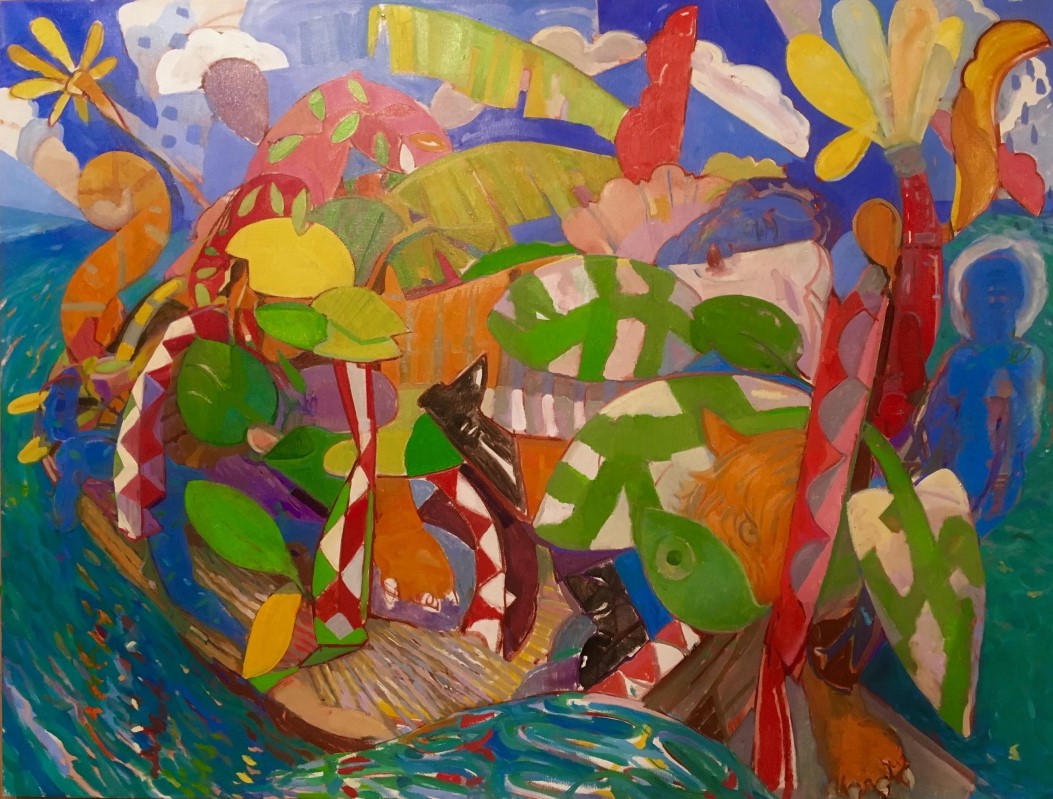
A Tropical Childhood
In “A Tropical Childhood,” deep, rich oils in blue, vibrant greens, yellows and oranges form an abstract shape. Remnants of a raft in an ocean, tropical tree leaves, a menacing tiger, the silhouette of a child and boots and limbs are peeking out — all alluding to Flores-Galbis’ early days in his home country of Cuba.
* * *
The work of career artist Enrique Flores-Galbis is a fascinating story of adaptation and resilience in the face of Parkinson’s Disease. Flores-Galbis – a classic portraitist for more than 30 years – was diagnosed with PD in 2015. Upon his diagnosis, he put down his brushes, convinced he would never paint again. Of that time, he said “I just was not up to doing these detailed things that I used to do, like putting a highlight on a child’s eye, or putting just the detail that you need. [Those require] the firmness of your hand”.
But slowly Flores-Galbis, encouraged by his art curator daughter, began dabbling in a less figurative, more colorful aesthetic. More recently, he has adopted new techniques in response to the movement challenges presented by PD and has developed an intense interest in the psychological “quirks,” hallucinations, delusions and various compulsive disorders brought on by the disease or, in some cases, the medication used to treat it. This interest grew from his observation of a member of his family, who, like him, suffered from Parkinson’s disease. This family member’s descent into delusions and paranoia, paralleled by Flores-Galbis’ growing awareness of the contemporary tendency toward conspiracy theories, alarmed him.
When asked about how Parkinson’s has affected his painting, Flores-Galbis said that:
Before my diagnosis I was a happy realist painter faithfully copying what already existed, spending countless hours rendering clouds that appeared to float and painting eyes that could have just moved. I negotiated grays and values to create the illusion of depth and atmosphere, persuaded lines and brush strokes to stick to the description of an object or the expression of a thought. But everything changed when a young resident slammed with me with the words: degenerative, progressive, and incurable.
Now I need to see reds, yellows and laughing blues lurching into vivid greens and purples, but never straying into grays. I crave brush strokes and lines that detach from the subject to signify nothing but a joyful leap, a moment. This is my momentary cure, my release, a dopamine rush more effective than anything a doctor can prescribe. It is what keeps me together.

